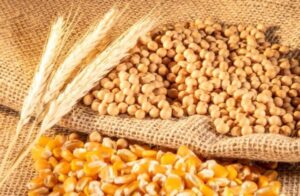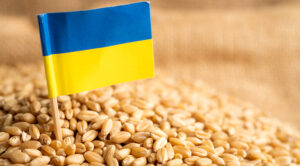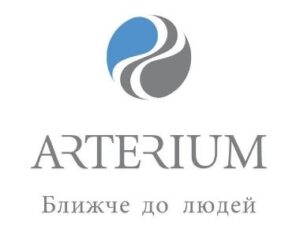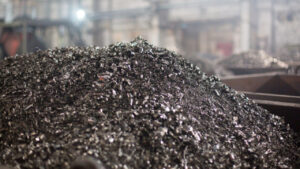
In January-September 2024, Ukraine exported $1.98 billion worth of agricultural products to Turkey and would like to deepen cooperation in the agro-processing industry, Ukrainian Minister of Agrarian Policy and Food Vitaliy Koval said at a meeting with Turkish Ambassador to Ukraine Mustafa Levent Bilgen in Kyiv on Tuesday.
“Ukraine and Turkey complement each other in the agricultural sector. We need to deepen cooperation between the countries, in particular in the agro-processing industry, and move together to new markets,” the press service of the Ministry of Agrarian Policy and Food quoted him as saying.
The Minister noted that Turkish agro-processing companies can find new high-quality markets for their business in Ukraine. This will be beneficial for both countries. Also, Ukraine and Turkey can cooperate in the export of cattle and small cattle meat. Turkey’s experience in irrigation is important for Ukraine. Especially after the Kakhovka dam was blown up.
Koval thanked Turkey for its involvement in ensuring food security. In particular, for participating in the humanitarian initiative of Ukrainian President Volodymyr Zelenskyy “Grain From Ukraine”, under which Ukrainian grain is supplied to countries on the African continent.
The Minister of Agrarian Policy invited his Turkish counterpart to discuss further cooperation in agriculture.
For his part, Mustafa Levent Bilgen noted that Turkey appreciates cooperation with Ukraine, particularly in the agricultural sector. However, it understands the importance of the Ukrainian economy and ensuring the world’s food supply through grain exports.
The Turkish Ambassador assured of continued support for Ukraine and expressed readiness to deepen cooperation.

Since the beginning of 2024/25 MY, Ukraine exported 12.04 mln tonnes of grains and pulses as of October 21, of which 2.57 mln tonnes were shipped this month, the Ministry of Agrarian Policy and Food reported, citing the operational data of the State Customs Service of Ukraine.
According to the report, as of the same date in 2023, the total shipments were estimated at 8.333 mln tonnes, including 1.58 mln tonnes in October.
In terms of crops, since the beginning of the current season, Ukraine has exported 7.228 mln tonnes of wheat (1.13 mln tonnes in October), 1.673 mln tonnes of barley (350 thsd tonnes), 10.6 thsd tonnes of rye (3.1 thsd tonnes), and 3.844 mln tonnes of corn (1.08 mln tonnes).
The total exports of Ukrainian flour since the beginning of the season as of October 21 are estimated at 22.7 thsd tonnes (3.8 thsd tonnes in October), including 20.6 thsd tonnes of wheat (3.3 thsd tonnes).

In January-September of this year, Ukrainian companies increased exports of ferrous scrap by 54.4% year-on-year to 202,421 thousand tons from 131,131 thousand tons.
According to statistics released by the State Customs Service on Tuesday, 24.767 thousand tons of scrap were exported in September, 28.425 thousand tons in August, 24.702 thousand tons in July, 22.161 thousand tons in June, 14.952 thousand tons in May, 26.153 thousand tons in April, 20.907 thousand tons in March, 23.194 thousand tons in February and 17.160 thousand tons in January.
In monetary terms, scrap exports increased by 71.4% to $64.703 million from $37.749 million.
In January-September, Ukraine exported scrap metal mainly to Poland (83.40%), Greece (12.81%) and Germany (3.44%).
In the first nine months of the year, the country imported 90 tons of scrap metal worth $104 thousand, while in January-September 2023, 793 tons of scrap metal worth $301 thousand were imported. This year’s imports were mainly from Turkey (68.27% in monetary terms), the British Virgin Islands (13.46%) and Panama (6.73%).
As reported, in 2023, Ukraine’s scrap collecting enterprise increased the export of scrap metal from the country by 3.4 times compared to the previous year – up to 182,485 thousand tons from 53,557 thousand tons. In monetary terms, exports increased 2.74 times to $52.723 million from $19.271 million.
Earlier, Ukrmetallurgprom President Oleksandr Kalenkov stated in an op-ed on the Interfax-Ukraine website that scrap metal is exported through the European Union, which has a preferential export duty of EUR3 per ton, and from there the raw materials are redirected to real customers. He noted that exporting raw materials directly to customers would cost EUR180 in export duties, and the Ukrainian budget has already lost UAH 350 million.
The head of Ukrmetallurgprom called for a temporary ban on the export of ferrous scrap to provide steelmakers with strategically important raw materials during the war.
He also clarified that a ton of scrap metal processed into steel brings in 10 times more to the budget than the EU export duty, which is about $300 per ton.
In 2022, Ukraine reduced exports of ferrous scrap by 11.5 times compared to the previous year, to 53,557 thousand tons, and in monetary terms, it decreased by 12.4 times, to $19.271 million.

In the first nine months of 2024, Arterium Pharmaceutical Corporation increased its share of exports to 20% in physical terms, while maintaining its share in monetary terms at 23%.
As Arterium told IF, in 2023, the share of export sales amounted to 17% in physical terms and 23% in monetary terms.
“In 2023, Arterium reached the pre-war level of profit from export operations. Compared to previous years, we see a gradual increase in exports,” the corporation said.
At the same time, Arterium notes that the main focus of the corporation’s export strategy is on expanding its operations in Europe, Asia and neighboring regions.
“Arterium has already formed a portfolio of about 20 products with which it plans to enter the European market. Among them, in particular, are products for the treatment of cardiology and endocrinology diseases,” the corporation said.
Arterium reminded that in 2023, the corporation registered its first product in the EU market, Chlorophyllipte Solution, in Latvia, which, thanks to Latvian partners, is now available in Poland.
“In the future, we plan to supply it to other Baltic countries,” the corporation said.
At the same time, Arterium notes that a GMP certificate from the country’s regulatory authority is always a pass to a new market, “but some countries create barriers to industry competitors, thus protecting local producers.”
“One such market is the European market. The Ukrainian pharmaceutical business has been waiting for the so-called “visa-free regime for medicines” for a long time. It is important for the Ukrainian pharmaceutical industry to achieve the recognition of Ukrainian GMP certification in the European Union as soon as possible, as this is the main barrier to exports today,” the corporation emphasized.
The corporation also noted that Arterium is actively considering the possibility of entering the African market in the near future, which is one of the fastest growing markets for pharmaceutical products, thanks, in particular, to population growth, improved economic conditions and active support from international humanitarian organizations that provide funding and resources for the provision of medicines.
At the same time, there are a number of risks in this market, including insufficient harmonization of regulatory systems across Africa, difficulties in drug delivery and internal logistics problems, financial instability, payment delays, and the presence of a significant number of counterfeit drugs on the market.
“The corporation is looking for opportunities to partner with local distributors and international organizations to overcome obstacles and meet the growing demand for pharmaceuticals in the region,” Arterium said.
As reported earlier, according to the Proxima Research analytical system, Arterium Pharmaceutical Corporation, which increased its retail sales by 22.5% in UAH equivalent in the first six months of 2024, rose from sixth position in the first half of 2023 to third place in the pharmaceutical market. In the first half of the year, Arterium’s share in the retail pharmaceutical market amounted to 3.23%.

In January-September this year, Ukraine reduced exports of ferroalloys in physical terms by 5.5 times compared to the same period last year – to 59.167 thousand tons from 325.066 thousand tons.
According to statistics released by the State Customs Service (SCS) on Tuesday, exports of ferroalloys in monetary terms decreased by 4 times to $70.961 million from $281.397 million.
At the same time, the main exports were made to Turkey (26.76% of supplies in monetary terms), Poland (24.46%) and Italy (18.79%).
In addition, in January-September, Ukraine imported 71,766 thousand tons of these products compared to 5,916 thousand tons in January-September 2023 (an increase of 12.1 times). In monetary terms, imports increased 5 times to $121.376 mln from $24.141 mln.
Imports were mainly from Poland (37.86%), Norway (15.95%) and Kazakhstan (13.90%).
As reported, Pokrovsky Mining and Processing Plant (PGOK, formerly Ordzhonikidze Mining and Processing Plant) and Marganetsky Mining and Processing Plant (MGOK, both in Dnipropetrovska oblast), both part of Privat Group, temporarily suspended the production and processing of crude manganese ore in late October and early November 2023, while NFP and ZFP temporarily stopped smelting ferroalloys. Later, ferroalloy plants resumed production at a minimum level.
In 2023, Ukraine decreased exports of ferroalloys in physical terms by 1.5% compared to 2022, to 344.173 thousand tons, while in monetary terms, exports of ferroalloys decreased by 47.2% to $297.595 million. The main exports were to Poland (52.79% of supplies in monetary terms), Turkey (14.13%) and the Netherlands (8.46%).
In addition, in 2023, Ukraine imported 14.203 thousand tons of these products, which is 30.9% less than in 2022. In monetary terms, imports decreased by 41% to $42.927 million. Imports were carried out mainly from Poland (23.94%), India (16.08%) and Armenia (14.35%).
Prior to the nationalization of the financial institution, PrivatBank organized the business of ZZF, NZF, Stakhanovsky ZF (located on the NKT), Pokrovske and Marganetske GOKs. Nikopol Ferroalloy Plant is controlled by EastOne Group, established in the fall of 2007 as a result of the restructuring of Interpipe Group, and Privat Group.